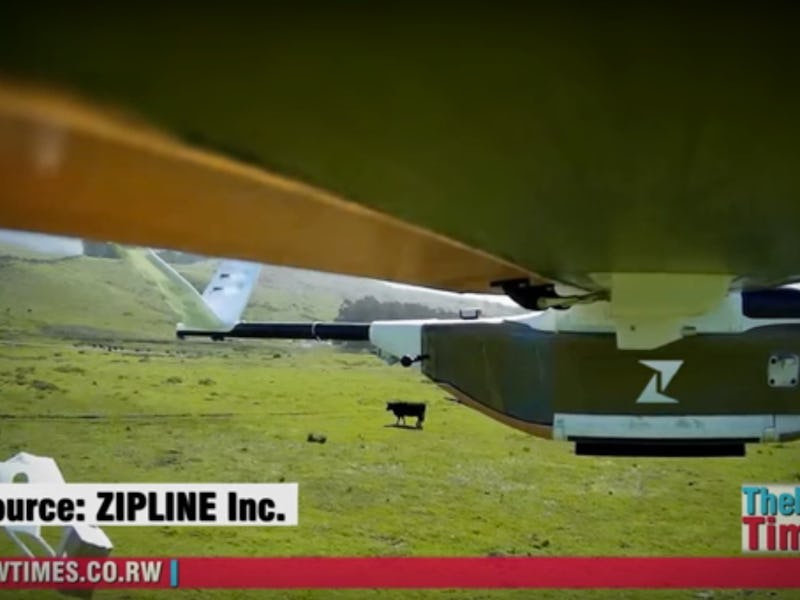Rwanda's Blood Drones Are a High-Tech Circulatory System for a Low-Tech Country
Injured people don't have time for sub-Saharan Africa to get better at building roads.

Autonomous drones will soon be ferrying bags of human blood across Rwanda. The government of Rwanda has contracted the American robotics firm, Zipline Inc., to develop and run a drone network in the country’s rural Ruhango district. It’s a pilot program for a potential national network of sanguine UAVs.
Rwandan officials are arguing that the drones will be able to transport the blood and other key medical products faster than motorbikes, the current mode of transportation, and while saving money and critical time. “We believe that using cutting edge technology to allow supply chains to operate independently of existing infrastructure represents a huge opportunity for our country,” said Minister of Youth and ICT Jean Philbert Nsengimana in a statement to the press.
One of the major obstacles to reliable medical treatment in rural parts of Rwanda and across the less-developed regions of Africa is inadequate infrastructure. A lack of highways and reliable roadways frequently hampers attempts to provide emergency services, routine care, and the materials necessary to perform needed operations. When it comes to blood, the supply chain is tangled somewhat by the AIDS epidemic. Tested transfusions are hard to come by.
The CEO of Zipline, Inc. sees the project in a different light, though by no means understates its potential implications.
“I think the most important thing that I can emphasize is that this is going to be the first time in the history of human civilization that autonomous or self-driving vehicles will be used to deliver medical products,” Rinaudo said at a press conference. “It will be the first time ever that these vehicles are actually integrated into an existing public health supply chain.”
While the Swiss are testing delivering mail by drone and Amazon is looking to drones to dramatically boost their delivery speeds, it is refreshing to see the “game-changing” technology put to use in a way that could help countries with real challenges. The alternative to the drone networks would be building highways, which would jeopardize the environment, cost billions, and have predictably unpredictable political ramifications.